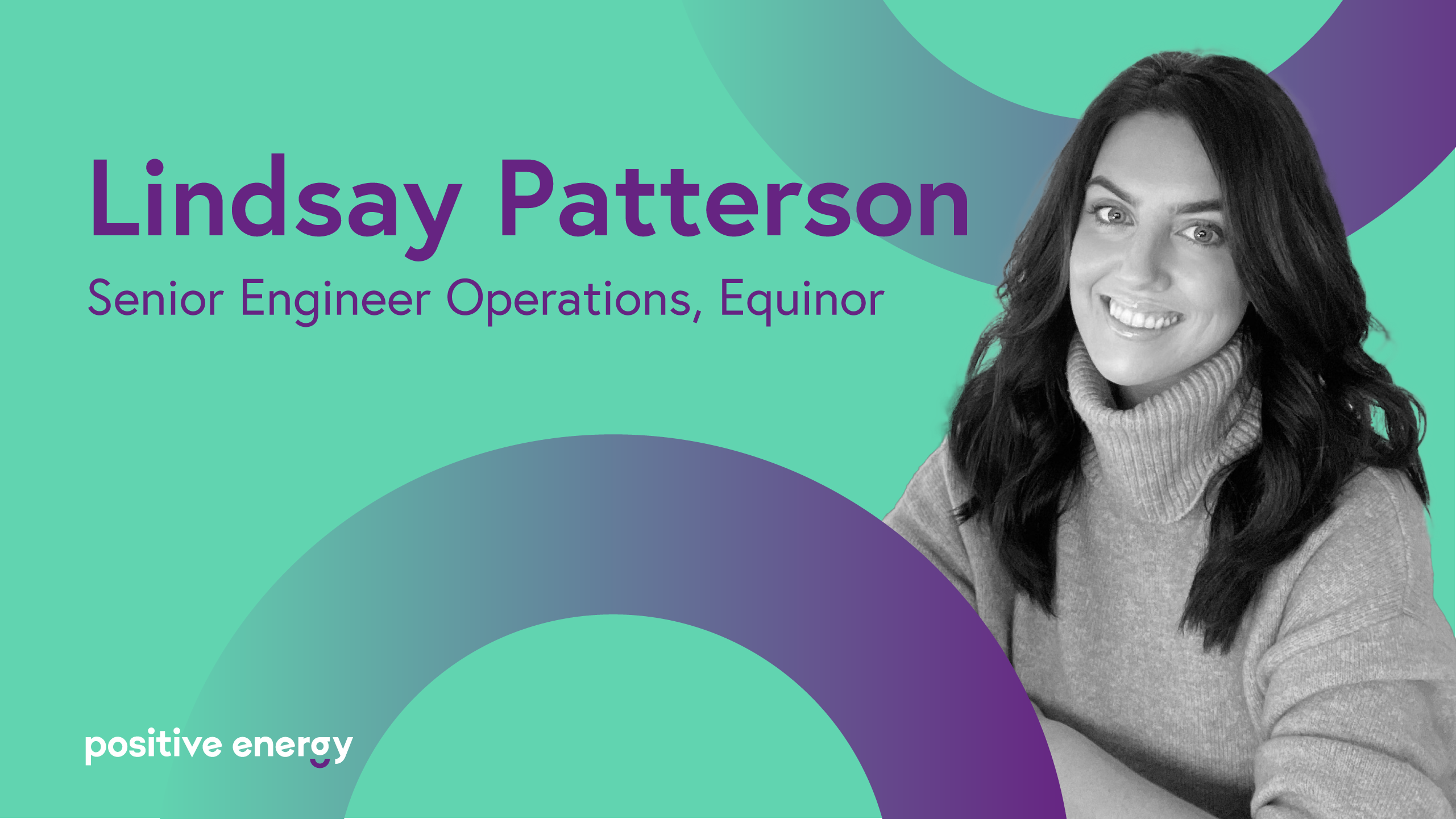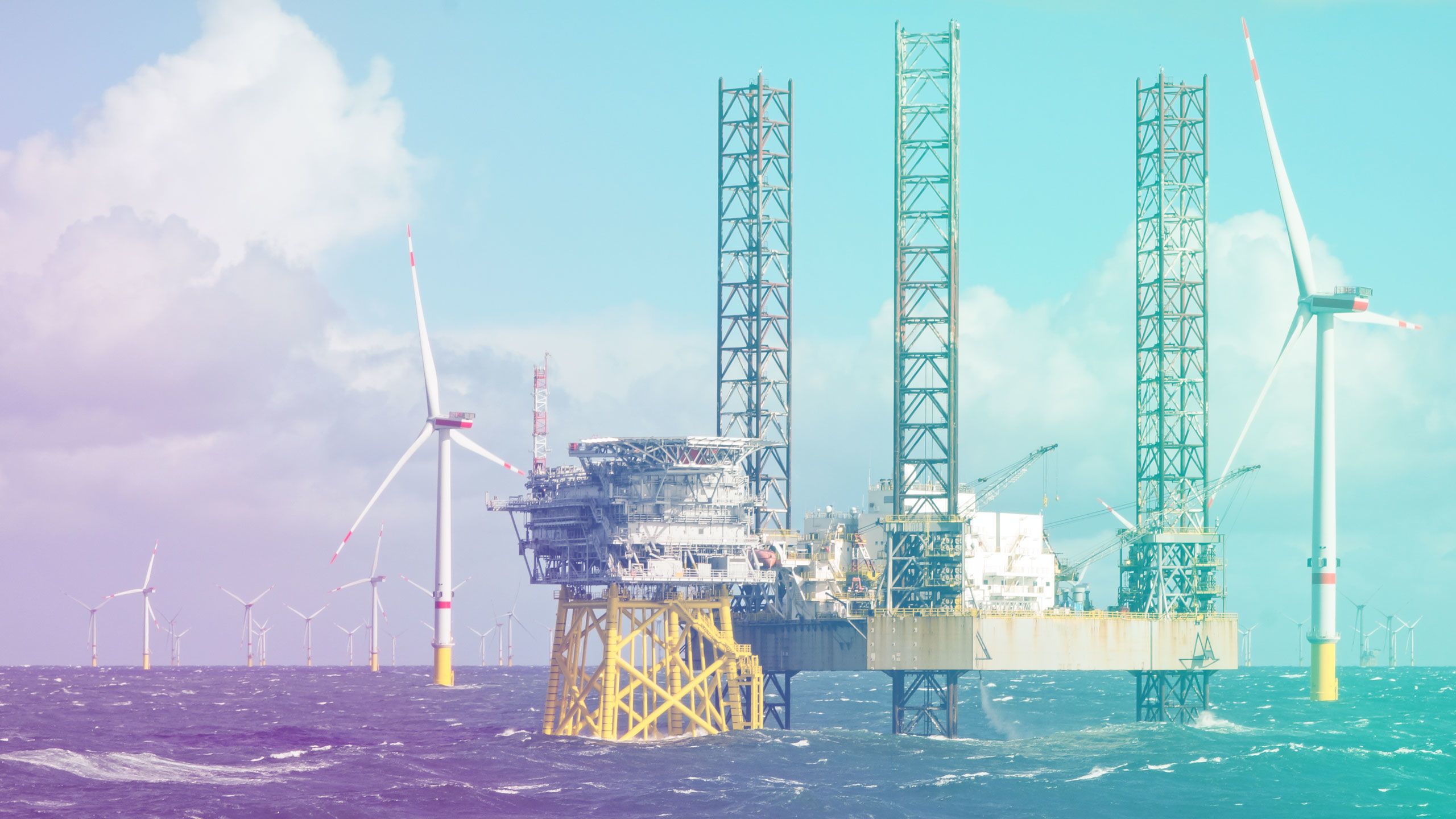
The importance of a thriving, diverse oil and gas workforce in solving the challenge of net zero.
Originally from the Isle of Barra, in the Outer Hebrides, Lindsay Patterson (35) initially thought engineering was a ‘boy’s job’. However, after studying a degree in Mechanical & Electrical Engineering, she is now playing an important role working for Equinor as the company strives to become a net zero company.
I’ve lived my whole life surrounded by the beauty of northern Scotland. I’m originally from the Isle of Barra, then arrived on the mainland to the Highland town of Tain for school. When I finished my studies, I was really stuck as to what I wanted to do, but knew that I was strongest in and most passionate about, subjects like maths and graphic communications.
It was through an acquaintance that I found out about engineering. At the time, it was still very much seen as a ‘boy’s job’ and I didn’t think that being an engineer was even an option for women! The notion of an interesting career that challenged societal norms was hugely appealing to me and the more I researched, the more the options and possibilities within the energy industry became apparent. I went on to complete a degree in Mechanical & Electrical Engineering at the University of the Highlands & Islands.
Today I’m based in Aberdeen and much of my job as a senior engineer with Equinor involves supporting offshore operations with planned and ad-hoc maintenance. I’m also involved with ensuring compliance with all relevant UK legislation during these technical activities.
More broadly, the work I do, collectively with my fantastic team, is helping Equinor move towards a cleaner future. While demand for oil will continue for some years, carbon dioxide emissions must decrease if we are going to become a net-zero company and country. We need to deliver the energy the world needs without contributing to global warming. It’s an exciting, yet challenging journey, but we are all fully engaged in making it a success. We are working to reduce emissions by streamlining the way we work, reducing energy intensiveness in projects through digitisation, reducing offshore travel, and making more of the use of robots and remote operations. It all makes a difference!
Throughout my career, I’ve been lucky enough to be involved in several large-scale projects with Equinor, including the launch of the Mariner oil field – the largest field development on the UK continental shelf in recent years. It’s through projects like this that I realised innovation and success can only be truly achieved when there’s greater diversity in the workforce.
The appeal of challenging convention that originally brought me into the industry has stayed with me, and I’m proud to champion diversity and inclusion (D&I) initiatives in the workplace. I’ve been involved in a number of projects, including a report looking into inclusive offshore working. Creating a diverse and inclusive culture needs good leadership but is not necessarily defined from the top – it requires the support and engagement of the entire workforce.
I also think STEM and D&I education in schools will be a crucial contributor to the growth of new energy technologies. We need critical thinkers and increased science literacy to enable the next generation of innovators across genders and backgrounds to bring brilliance and sustainability to the planet.
I’m hugely hopeful about the oil & gas industry’s future as efforts are increasingly made to create greater diversity. My advice for anyone is to join D&I forums and networks, find podcasts, read or listen to books and learn from the experiences of others. Listen, understand and make the changes necessary, big or small, to make every environment diverse and inclusive and the successes will come.
How you can have your say
We need reasons to be hopeful, and we hope you’ll find them while exploring our site. We’d love to hear any feedback, stories or questions you have as you join us on this journey.
Get in touch at support@positiveaboutenergy.com

